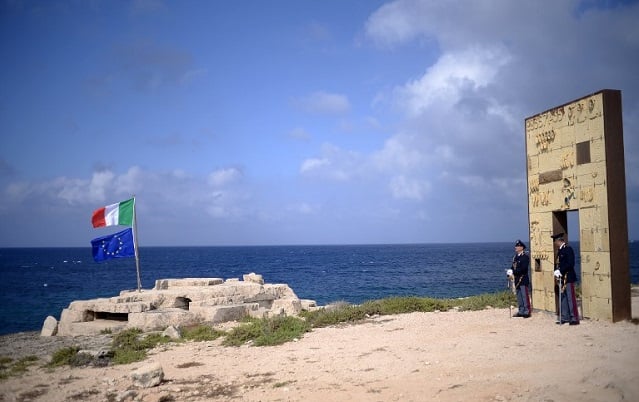But over the weekend, the town's mayor, Salvatore Martello, warned that the town is “about to collapse”, singling out groups of migrants for criticism.
On Saturday, Martello called for the government to close Lampedusa's hotspot, a centre created to host migrants when they first arrive to the island but which has ended up housing them longer term. In an open letter to Italy's largest news agency, Ansa, Martello said that Lampedusians had been “abandoned”.
“Lampedusa is collapsing, police are powerless,” the mayor warned, calling for the Interior Ministry to intervene and close the hotspot, which he labelled “useless”.
- Four-year-old migrant reunited with mum in Italy thanks to bizarre coincidence
- Migrant documentary to represent Italy at Oscars
- Meet the doctor who has assisted every migrant to arrive at Lampedusa
Martello said that he regularly received complaints from tourists and business owners on the island, who told him they “could not manage anymore” due to repeated instances of threats, thefts, and harassment. He said that a group of “180 Tunisians” were to blame for these incidents, and that they were able to “circumvent security controls” despite a heavy presence of security and police officers outside the centre.
Martello, who ran independently and had previously served two terms as mayor of Lampedusa, was recently re-elected mayor of the small island off Sicily, replacing Giusi Nicolini of the ruling Democratic Party who received just over 900 votes. She had been awarded a Unesco peace prize for her “humanity, and her constant efforts in managing the refugee crisis” while in power.
His predecessor on Sunday accused him of trying to recreate a “climate of fear”, saying that the incidents he referred to were minor and infrequent episodes of theft, though she added that there were increasing numbers of arrivals from Tunisia following the closure of the Libyan route.
On Monday, Martello said that the situation on the island had “returned to normality” with increased checks on the migrants at the centre, but his comments have reignited debate over how Lampedusa is coping with the strain of huge numbers of arrivals.
The result of June's mayoral elections, with Nicolini coming third, prompted a global backlash. News outlets across the world, including the Guardian and Washington Post, interpreted her loss as a vote against Italy's welcome culture and increasing frustration at the burden of the migration crisis.
Indeed, the day after his election, Martello said: “On the subject of welcome culture, we need to change everything”.
But the reality of the vote was more complex than that. Lampedusian cultural organization Askavusa wrote in a post-election analysis that islanders voted against Nicolini primarily because of administrative issues – lack of running water and problems with trash management on the island – rather than due to her stance on migration.
What's more, while Nicolini made regular TV appearances championing the welcoming culture of the island, and locals certainly made a huge effort, the conditions and overcrowding at the facilities themselves were repeatedly criticized.
In 2013, the EU denounced video footage of “appalling conditions” in the migrant reception centre. Nicolini likened the scenes – which showed migrants stripping and being disinfected en masse – to a “concentration camp”.
A report from the Senate's human rights committee last spring criticized the hotspot for failing to provide information about the asylum process and potentially denying migrants the right to freedom from arbitrary detention. And a Council of Europe report this year said children were left “vulnerable” by the centres due to poor sanitation and the long time typically spent in the centres.
Over a quarter of a million people have reached the shores of Lampedusa after perilous journeys at sea, and a major shipwreck close to the island in October 2013 first brought it international media attention.
That disaster resulted in over 350 deaths, despite the best efforts of islanders to rescue the drowning, and prompted EU Commissioner Jean-Claude Juncker to say there must be “no more deaths in the Mediterranean”.
But last autumn, at the island's first official Remembrance Day for migrants, Nicolini reminded attendees that since then, a further 11,000 people had lost their lives trying to reach Europe.


 Please whitelist us to continue reading.
Please whitelist us to continue reading.